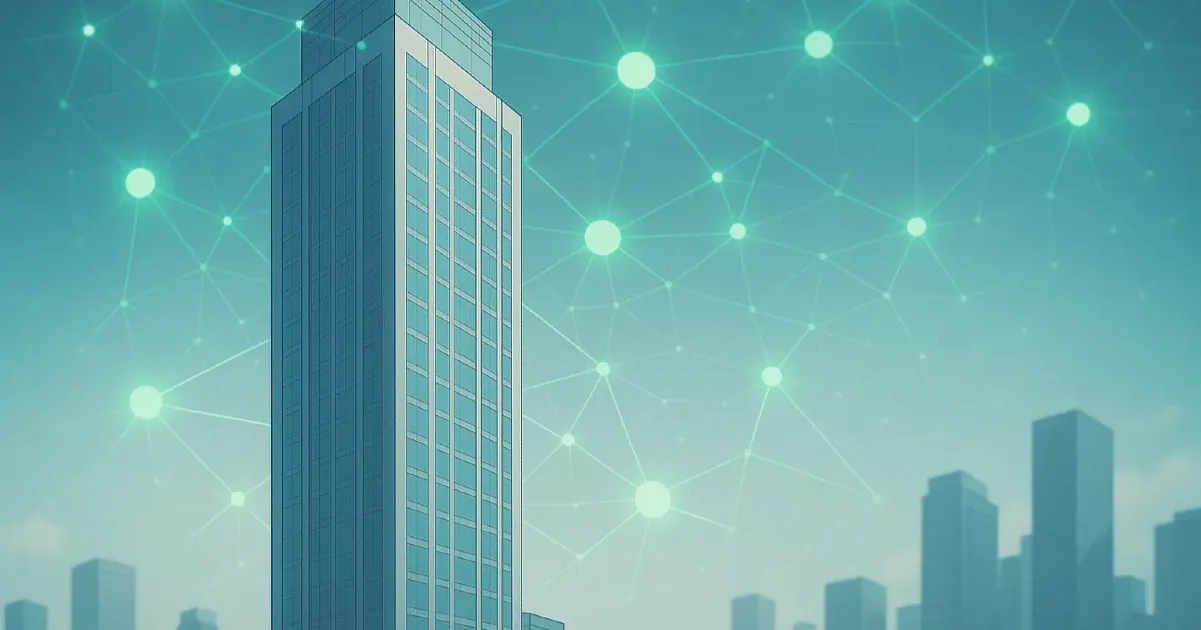Japan’s Gates Inc. and Oasys launch $75M Tokyo real estate tokens, creating liquidity and investor access and aiming for global asset tokenization.
There’s something quietly extraordinary unfolding in Tokyo. Smartly nestled among sleek steel-and-glass towers, a silent financial experiment is brewing, one that could shift how we invest in real estate forever. It starts with Gates Inc., a respected Japanese property firm, and the Oasys blockchain, known for gaming roots now branching out into tangible assets.
They’re combining forces to tokenize $75 million of central Tokyo real estate, launching what could be the first wave of a global tokenized property movement. Think of it: owning a castle in code, accessible from anywhere, divided into neat digital units you can buy or sell at will. It’s a chance to level the playing field, and Gates appears determined to take it further, potentially touching over $200 billion worth of property.
From Local Landlord to Token Trailblazer
Gates didn’t stumble into this. When the company looked at the immovable, paperwork-heavy real estate world, they saw a chance to break open its walls. Partnering with Oasys, they didn’t just slap a digital label on property; they built a thoughtful system. The real estate stays under a special-purpose vehicle (SPV), while ownership units float on the blockchain. Rent gets paid, value flows back into the system, and everything becomes visible on-chain.
Gates CEO Yushi Sekino described it simply: “We wanted a token economy that auto-reinvests returns.” And that’s exactly what’s happening: blockchain is giving real estate liquidity with a side of compound yield. For a world used to tying up capital for decades, this is a breath of fresh air.
Why This Matters: Liquidity, Inclusion, Innovation
Real estate built our cities, but it's missing from modern investment strategies. Gates and Oasys are rewriting the script. Imagine owning a slice of high-end Tokyo real estate with a small investment. No middleman, no endless paperwork, just digital tokens tradable worldwide.
That’s a seismic shift. And it’s not just fine for distant investors. It benefits local markets too. Developers can raise funds faster. Asset owners see value uplift. And ordinary people get access without needing deep pockets or fast lawyers.
This is where Ethereum and Bitcoin taught lessons: tokenization brings transparency and fractional investment to once-exclusive markets. Now, it’s not just crypto driving that change; it’s real estate.
Game Tech Meets Property Power
The choice of Oasys mattered too. Known for gaming, it’s now tackling “real-world asset tokenization.” That jump wasn’t hype; it was strategic. Oasys offers speed, low fees, and a framework built for digital goods. That makes it perfect for tokenizing assets that once felt permanent and slow.
Gates and Oasys aren’t stopping in Japan either. They’re already drawing blueprints for launches in the U.S., Europe, and Asia Pacific. The system is designed to be digital-first, globally ready, and blueprint-ready.
What It Means for Investors
Imagine you're interested in Tokyo real estate but don't want the hassle. You buy tokens, earn rent proportional to your holdings, and maybe trade those tokens if tomorrow you need liquidity. The SPV handles legality, compliance, and rent distribution, all coded and transparent.
Institutions might love this too. No messy legal structures, just programmable logic, audited contracts, and instant updates on asset holdings. It’s real estate in a wallet by design.
The Regulatory Tightrope
Of course, nothing here is guaranteed. Laws around tokenized assets are still shaky. Each country has its own view on what counts as property, what counts as securities, and who gets to trade them. Gates and Oasys will need compliance teams in multiple countries just to keep expansions lawful.
But if they pull it off, we’ll have a universal system: own a piece of Tokyo, London, or Manila through the same wallet. And that if regulators, tech, and markets align, it is nothing short of revolutionary.
What Comes Next
So far, it’s about $75 million in Tokyo property. But Gates’s real ambition glimmers on the horizon. Phase 2 may touch hundreds of millions more. Phase 3 could breach global scope. And the use cases might expand. Imagine tokenized studios, theaters, and even lending collateralized by real estate tokens.
It’s ambitious. It’s global. And it’s digital. But realistic? That depends on execution on balancing regulation with innovation, stability with growth, and clarity with speed.
Final Word
Gates Inc. and Oasys are quietly reshaping a massive financial industry, one token at a time. If they succeed, property investment won’t just be for richer or wealthier clients; it could be for anyone with a wallet and a vision. That’s not just blockchain talking. That’s a new reality, rooted in brick as long as the digital framework holds.






